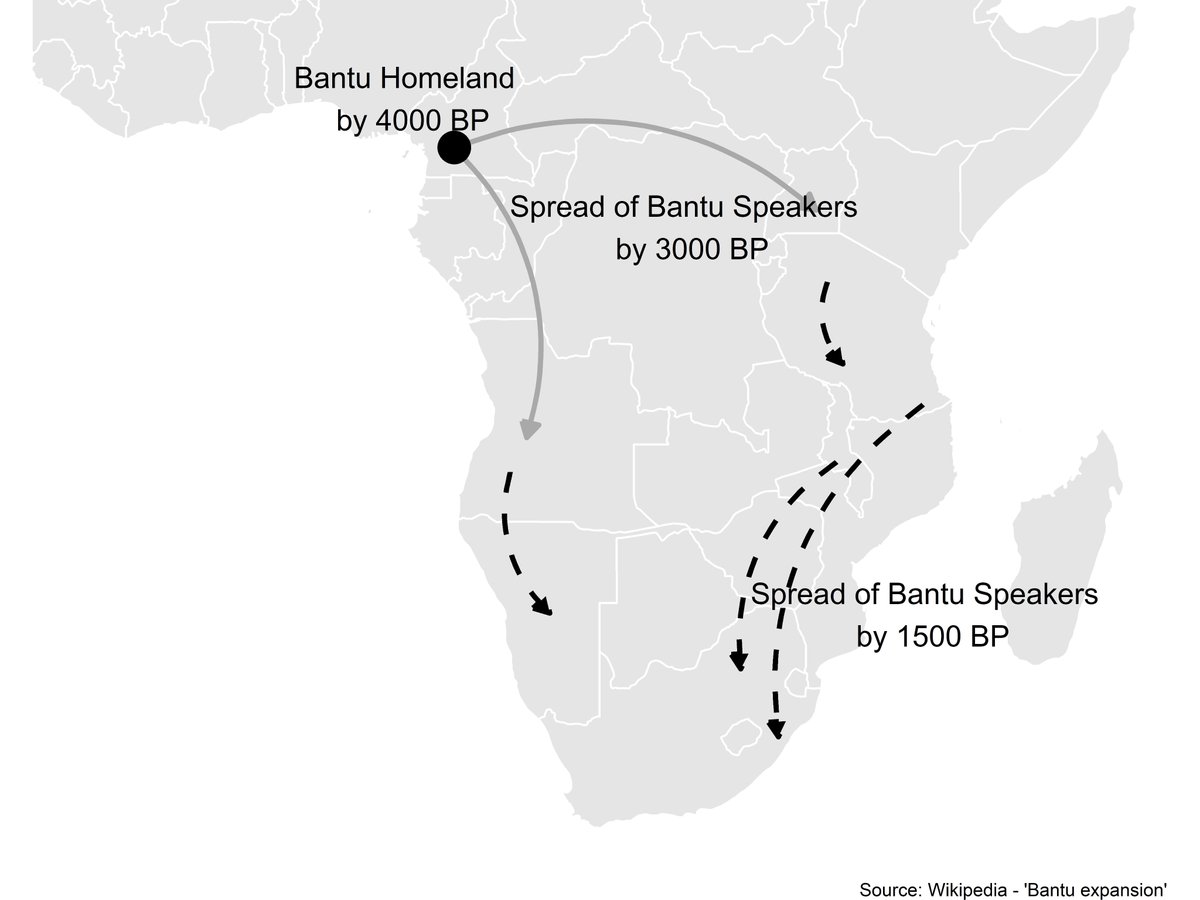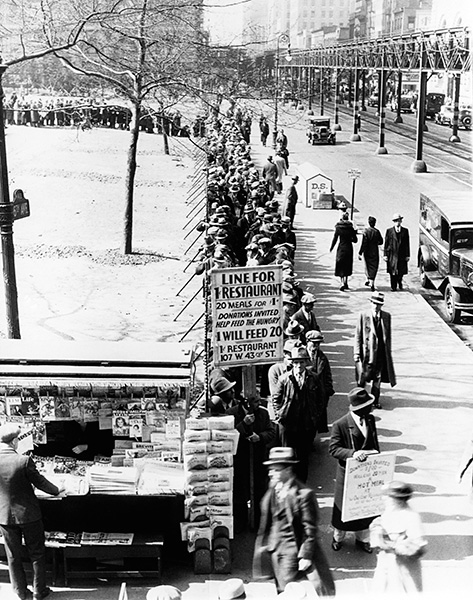Our Long Walk to Economic Freedom is now available from @CambridgeUP.
What is it about? In 35 short chapters, I tell the story of humanity’s progress, from our migration out of Africa to Covid-19. I do so from an African perspective.
Want to know more? An #econhist🧵...
1/50
What is it about? In 35 short chapters, I tell the story of humanity’s progress, from our migration out of Africa to Covid-19. I do so from an African perspective.
Want to know more? An #econhist🧵...
1/50

I begin by comparing economic history to Monopoly and Settlers of Catan.
Which one best mimics our positive sum world? The evidence of the last two centuries, like that from Our World in Data, suggests a clear favourite.
2/50
bit.ly/3pas7P3
Which one best mimics our positive sum world? The evidence of the last two centuries, like that from Our World in Data, suggests a clear favourite.
2/50
bit.ly/3pas7P3
Chapter 1: We want to believe in the existence of @theblackpanther’s Wakanda because it is so different from the reality of many African countries.
This book is about understanding why what we wish for and what we have is so different.
3/50
This book is about understanding why what we wish for and what we have is so different.
3/50

Chapter 2: Humans migrated out of Africa about 100 000 years ago. Did this early migration early determine the wealth and poverty of nations?
Quamrul Ashraf and @GalorOded and suggest that this might be the case, but many contest their findings.
4/50
Quamrul Ashraf and @GalorOded and suggest that this might be the case, but many contest their findings.
4/50

Chapter 3: @harari_yuval writes: ‘We did not domesticate wheat. It domesticated us.’
This chapter discusses how the adoption of farming changed economic life. A theory from @ola_olsson1971 and @cpaik_nyuad shows the long-term consequences of this shift.
5/50
This chapter discusses how the adoption of farming changed economic life. A theory from @ola_olsson1971 and @cpaik_nyuad shows the long-term consequences of this shift.
5/50

Chapter 4: Long-haul tourists visiting @SouthAfrica are always fascinated by the clicks of isiXhosa. But how did isiXhosa get those clicks?
Inspired by Jared Diamond, this chapter reviews the Bantu migration as a lens to understand the importance of geography in history.
6/50
Inspired by Jared Diamond, this chapter reviews the Bantu migration as a lens to understand the importance of geography in history.
6/50

Chapter 5: There are three ways to solve the economic problems of production and distribution: custom, command and the market.
But how do societies switch between them? Technologies that reduce the cost of information push us towards the market approach.
7/50
But how do societies switch between them? Technologies that reduce the cost of information push us towards the market approach.
7/50

Says @MIT’s Anne McCants: ‘Johan Fourie’s commitment to understanding the historical roots of prosperity and ensuring its wide distribution in the future makes this one of the most humane economic histories I have read.’
Chapter 6: What do Charlemagne and King Zwelithini have in common?
Relying on the work of Sheilagh Ogilvie, this chapter reviews the strengths and limitations of Europe’s feudal institutions, with implications for institutions in Africa today.
9/50
Relying on the work of Sheilagh Ogilvie, this chapter reviews the strengths and limitations of Europe’s feudal institutions, with implications for institutions in Africa today.
9/50

Chapter 7: Many of today’s cultural practices, like polygamy and brideprice, have their roots in our economic past.
Research by Gareth Austin, @MarcellaAlsan, @jevanc, @jmorenocruz show why pre-colonial factor endowments, like the land/labour ratio, are worth studying.
10/50
Research by Gareth Austin, @MarcellaAlsan, @jevanc, @jmorenocruz show why pre-colonial factor endowments, like the land/labour ratio, are worth studying.
10/50

Chapter 8: The spread of Islam through North Africa had profound consequences for Africa and Europe.
@msaleh1982 shows how early taxation affected the distribution of income in Egypt. @lisablaydes and @cpaik_nyuad explain how the Crusades shaped Europe’s future.
10/50
@msaleh1982 shows how early taxation affected the distribution of income in Egypt. @lisablaydes and @cpaik_nyuad explain how the Crusades shaped Europe’s future.
10/50

‘Fourie is leading a renaissance of African economic history, and Our Long Walk to Economic Freedom gives every interested person a way to access his scholarship and that of other key scholars. It is destined to become a must-read in higher ed syllabi.’ – @mwanamak, UTK
11/50
11/50
Chapter 9: When 168 Spanish Conquistadores captured Atahualpa in the Battle of Cajamarca, the fortunes of the Inca and other South Americans were forever changed.
The Engerman-Sokoloff hypothesis informs our discussion of long-run American inequality.
12/50
The Engerman-Sokoloff hypothesis informs our discussion of long-run American inequality.
12/50

Chapter 10: We begin this chapter at Kilwa Kisiwani. We then visit India and the Forbidden City in Beijing. We travel with the Portuguese explorers into the Atlantic and Indian Oceans.
We discuss why the first era of globalisation turned into an era of colonisation.
13/50
We discuss why the first era of globalisation turned into an era of colonisation.
13/50

Chapter 11: More than 10 million Africans were shipped to the Americas during the Atlantic slave trade.
I review research by @WarrenWhatley, @mwanamak, @nunapgpalma, @DrNathanNunn, @nonso2, and @lwantchekon. @MichelleObama summarises it best.
14/50
I review research by @WarrenWhatley, @mwanamak, @nunapgpalma, @DrNathanNunn, @nonso2, and @lwantchekon. @MichelleObama summarises it best.
14/50

Chapter 12: @essobecker and @jaredcrubin introduce us to the Reformation. But why was this religious movement so important?
@JanLuitenV, @felipev84, @CageJulia, @valiguaran, @FelixMzS1 consider book production, literacy, and missionaries.
15/50
bit.ly/3bNsMD4
@JanLuitenV, @felipev84, @CageJulia, @valiguaran, @FelixMzS1 consider book production, literacy, and missionaries.
15/50
bit.ly/3bNsMD4
@OurWorldInData founder @MaxCRoser says: ‘This is the book for all those who are willing to learn from humanity’s long history to achieve a world in which more and more people can leave the deep poverty of the past behind.’
16/50
16/50
Chapter 13: I turn to new research by @LEAP_SU @MatiesResearch. Informed by debates on the Great Divergence and research by Stephen Broadberry and @JanLuitenV, I discuss when and why Cape society prospered.
A little family history is added for spice.
17/50
A little family history is added for spice.
17/50

Chapter 14: The Cape Colony was a slave economy. The Nieboer-Domar hypothesis helps to explain why.
But by the 1830s, slaves across the British Empire were emancipated. I discuss this process and compare it to new research by @TrevonDLogan and @Rick_Hornbeck on the US.
18/50
But by the 1830s, slaves across the British Empire were emancipated. I discuss this process and compare it to new research by @TrevonDLogan and @Rick_Hornbeck on the US.
18/50

Chapter 15: What do Mary Shelley’s @Frankensteinbth, the king of the Zulus, and a volcanic eruption of an Indonesian mountain have in common?
As my work with Dieter von Fintel shows, climate change that causes resource constraints can shape the future of a country.
19/50
As my work with Dieter von Fintel shows, climate change that causes resource constraints can shape the future of a country.
19/50

Chapter 16: Why did the Industrial Revolution begin when it did?
I review this age-old question based on new research by Joel Mokyr, Bob Allen, @DeirdreMcClosk and others. Culture and institutions of science play a central role.
20/50
I review this age-old question based on new research by Joel Mokyr, Bob Allen, @DeirdreMcClosk and others. Culture and institutions of science play a central role.
20/50

Our Long Walk to Economic Freedom is available at @CUPBookshop or your favourite local bookshop. (If not on the shelves, please request it!🤓)
It can also be ordered online at amzn.to/3QiTgex. And please write a review on @amazon or @goodreads.
21/50
It can also be ordered online at amzn.to/3QiTgex. And please write a review on @amazon or @goodreads.
21/50
Chapter 17: Railroads powered the industrial age – in Japan (@JP_Tang), in Algeria (@LMaravall), in Sweden (@bergerthor, @kerstinenflo), in India, in Uruguay (@alfoherranz) and the US (@Rick_Hornbeck).
In SA, @abel_gwaindepi shows why trains were a mixed blessing.
22/50
In SA, @abel_gwaindepi shows why trains were a mixed blessing.
22/50

Chapter 18: Access to property and political rights have economic consequences. But economics can also shape political decisions.
Research by @MelissaLDell on Peru shows how property rights regimes can have long-lasting effects.
#Anthropometrics provide further evidence.
23/50
Research by @MelissaLDell on Peru shows how property rights regimes can have long-lasting effects.
#Anthropometrics provide further evidence.
23/50

Chapter 19: Three things help to explain America’s 19th-century transformation: cheap energy, transport, and money.
I review recent research by @MarcellaAlsan, @PikaGoldin, and @Rick_Hornbeck, amongst others, that reveal improvements in American living standards.
24/50
I review recent research by @MarcellaAlsan, @PikaGoldin, and @Rick_Hornbeck, amongst others, that reveal improvements in American living standards.
24/50

Chapter 20: How can economics explain the timing of the Berlin Conference? And what can it say about its consequences?
@EwoutFrankema, @EliasPapaioann2, @LeanderHeldring, @sararlowes, @lmaravall, @emontero_CR, James Robinson, and many more help us to understand.
25/50
@EwoutFrankema, @EliasPapaioann2, @LeanderHeldring, @sararlowes, @lmaravall, @emontero_CR, James Robinson, and many more help us to understand.
25/50

Says #econhist @JanLuitenV of @ESH_UU: ‘In a brilliant tour de force, Johan Fourie turns history on its head and tells the story of the world economy from the eyes/perspective of Africa. A must read.’
26/50
26/50
Chapter 21: As @B_Eichengreen notes, we use analogical reasoning during crises.
The Great Depression and New Deal is one episode we tend to turn to. Price Fishback, Paul Rhode, @NicolasLZiebart and @rauchway all provide explanations of what happened during the 1930s and why.
The Great Depression and New Deal is one episode we tend to turn to. Price Fishback, Paul Rhode, @NicolasLZiebart and @rauchway all provide explanations of what happened during the 1930s and why.

Chapter 22: Russia took a different path towards industrialisation.
I discuss the persistence of Russian serfdom (hat tip @JCBuggle) and then turn towards the events (and ideologies) that engendered communism, with all its (good and bad) consequences (hat tip Bob Allen).
28/50
I discuss the persistence of Russian serfdom (hat tip @JCBuggle) and then turn towards the events (and ideologies) that engendered communism, with all its (good and bad) consequences (hat tip Bob Allen).
28/50

Chapter 23: A new chapter all about the economic causes and consequences of war.
I report research by @MartineMariott1, @kris_inwood, @ChinmayTumbe, @cmicmeissner, @ezhuravskaya, @Tianyi91, @YanagizawaD, @joachim_voth, @essobecker, @gerardrolanducb, @singhalecon and more.
29/50
I report research by @MartineMariott1, @kris_inwood, @ChinmayTumbe, @cmicmeissner, @ezhuravskaya, @Tianyi91, @YanagizawaD, @joachim_voth, @essobecker, @gerardrolanducb, @singhalecon and more.
29/50

Chapter 24: Mao shaped 20th century China.
@chenshuofrank and Xiaohuan Lan show how collectivisation policies caused widespread famine. The Cultural Revolution followed.
@david_yang, @marlon_seror and others show the long-term consequences of these events.
30/50
@chenshuofrank and Xiaohuan Lan show how collectivisation policies caused widespread famine. The Cultural Revolution followed.
@david_yang, @marlon_seror and others show the long-term consequences of these events.
30/50

‘In three dozen short but wide-ranging chapters, Johan Fourie demonstrates that recent research in economic history can be both enlightening and fun.’ – Joel Mokyr, Northwestern
31/50
31/50
Chapter 25: Argentina was one of the richest countries in the world in 1900. More than a century later the situation was very different.
This chapter, based on work by Alan Taylor, @RichardToye and @ClaudioBelini1, asks why. @Madonna makes a guest appearance as Evita.
32/50
This chapter, based on work by Alan Taylor, @RichardToye and @ClaudioBelini1, asks why. @Madonna makes a guest appearance as Evita.
32/50

Chapter 26: Independence in Africa did not fulfil the economic aspirations of many.
Research by @MichieldeHaas, @leighgardnerEH, @MJerven, @EwoutFrankema, and Emmanuel Akyeampong help to explain why.
Another guest appearance, this time by @ForestWhitaker as Idi Amin.
33/50
Research by @MichieldeHaas, @leighgardnerEH, @MJerven, @EwoutFrankema, and Emmanuel Akyeampong help to explain why.
Another guest appearance, this time by @ForestWhitaker as Idi Amin.
33/50

Chapter 27: How did South Africa industrialise?
I review how public entities like @Eskom_SA and private companies like Voorbrand and @PEPStores_SA (with entrepreneurs like Anton Rupert (see @cutmaker), Renier van Rooyen) paved the way for growth and development.
34/50
I review how public entities like @Eskom_SA and private companies like Voorbrand and @PEPStores_SA (with entrepreneurs like Anton Rupert (see @cutmaker), Renier van Rooyen) paved the way for growth and development.
34/50

Chapter 28: But South Africa was a segregated society. Mines relied on paying black workers from across the region low wages.
Apartheid policies called for separate development. But as @NobelPrize winner Albert Luthuli noted: ‘Economics will not obey racial blueprints.’
35/50
Apartheid policies called for separate development. But as @NobelPrize winner Albert Luthuli noted: ‘Economics will not obey racial blueprints.’
35/50

‘Presented in easily accessible language and a pleasant style, this book is a must-read. It is highly recommended for both the non-professional reader and undergraduate students in economics and the humanities.’ – Alois Mlambo, @UPTuks
36/50
36/50
Chapter 29: What explains the surprising take-off of East Asia in the twentieth century, the so-called Asian miracle?
Was it state-led industrialisation or private sector innovation? Research by @JP_Tang, @rodrikdani, @EricHanushek and @Woessmann helps us to understand.
37/50
Was it state-led industrialisation or private sector innovation? Research by @JP_Tang, @rodrikdani, @EricHanushek and @Woessmann helps us to understand.
37/50

Chapter 30: What do @LEGO_Group and the greatest invention of the 20th century have in common? A chapter on globalisation, building on the work of @kevinhorourke, @PascaliLuigi, @m_clem, @LantPritchett, and @rodrikdani.
Also: a shoutout to @legogradstudent!
38/50
Also: a shoutout to @legogradstudent!
38/50

Says @DeirdreMcClosk: ‘Africa, the Forgotten Continent, comes into its own in Fourie’s engaging romp through human history. Good: our ancestors, after all, were all Africans, though most of us are less varied than people in our homeland on the veldt.’
39/50
39/50
@DeirdreMcClosk continued: ‘The future of Africa is therefore bright. Fourie’s brilliant account shows why.’
Thank you, Deirdre, for the kind words. And for always championing African talent!
40/50
Thank you, Deirdre, for the kind words. And for always championing African talent!
40/50
Chapter 31: What can the dynamo teach us about the Fourth Industrial Revolution? Much, according to Paul David.
And can we expect new technologies to destroy jobs? Again, history can be our guide. I rely on research by Naomi Lamoreaux, Peter Temin and @BatizLazo.
41/50
And can we expect new technologies to destroy jobs? Again, history can be our guide. I rely on research by Naomi Lamoreaux, Peter Temin and @BatizLazo.
41/50

Chapter 32: Financial bubbles are not new.
In this chapter on the Global Financial Crisis, I not only explain its antecedents but also review the lessons – thanks to @B_Eichengreen, @ProfJohnTurner, @wquinn05 – of previous crises.
Iceland and @Bitcoin play key roles.
42/50
In this chapter on the Global Financial Crisis, I not only explain its antecedents but also review the lessons – thanks to @B_Eichengreen, @ProfJohnTurner, @wquinn05 – of previous crises.
Iceland and @Bitcoin play key roles.
42/50

Chapter 33: In 2000, @TheEconomist called Africa ‘the hopeless continent’. In December 2011, it had a more optimistic outlook. What changed?
I review @EnglebertPierre, @JeffDSachs, @bill_easterly, @dambisamoyo, @belindaarch, @BSangafowaCoul for an answer.
43/50
I review @EnglebertPierre, @JeffDSachs, @bill_easterly, @dambisamoyo, @belindaarch, @BSangafowaCoul for an answer.
43/50

Chapter 34: The story of post-apartheid South Africa is one of two halves. The first half is one of optimism; the second, pessimism.
Will Madiba’s long walk to freedom ever end? Only if we learn from past successes and failures.
44/50
bit.ly/3p76mzL
Will Madiba’s long walk to freedom ever end? Only if we learn from past successes and failures.
44/50
bit.ly/3p76mzL
Chapter 35: Our long walk continues into the future. Building on the work of @DrDaronAcemoglu and James Robinson, I explore future trends.
Will information (@shoshanazuboff), climate change, space travel (@elonmusk), and innovation aid us in our quest for flourishing?
45/50
Will information (@shoshanazuboff), climate change, space travel (@elonmusk), and innovation aid us in our quest for flourishing?
45/50

‘Johan Fourie takes us on an ingenious and entertaining journey through history that teaches us that you don’t win the economic World Cup by appointing an expensive coach but by giving every kid a soccer ball.’ - @johanknorberg
46/50
46/50
For slides (of all the chapters) and graphs to use in your courses, for all podcasts and reviews, for explainer videos and much more #econhist info, visit ourlongwalk.org.
For more info on the new edition, read this: bit.ly/3Qiida4
47/50
For more info on the new edition, read this: bit.ly/3Qiida4
47/50
Too many thank yous. My colleagues at @LEAP_SU. @WimdeVilliers @StellenboschUni. Michael Watson @CambridgeUP. @helanya_za.
I dedicated the first edition to my students. This one is to my teachers who have guided my own long walk, including @JanLuitenV @Stan_du_Plessis.
48/50
I dedicated the first edition to my students. This one is to my teachers who have guided my own long walk, including @JanLuitenV @Stan_du_Plessis.
48/50
#econhist @leighgardnerEH of @LSEEcHist says: ‘Our Long Walk to Economic Freedom is an ambitious and refreshingly accessible jaunt through the economic history of the world, told from a South African perspective.’
49/50
49/50
‘This is the first book to bring Africa in from the margins and place it centrally into the big narratives of world economic history. The subject will never be the same again.’ – James Robinson, @BeckerFriedman at @UChi_Economics
50/50
50/50
If you enjoyed Our Long Walk to Economic Freedom, make sure to invest in @jaredcrubin & @MarkKoyama's How the World Became Rich (amzn.to/3vVozno), @GalorOded's The Journey of Humanity (amzn.to/3pdxTiM), ...
@LdelaEscosura's Human Development and the Path to Freedom (amzn.to/3C1I29Y), @delong's Slouching towards Utopia (available in Sep: amzn.to/3BXSeAb) and @JanLuitenV and Maarten Prak's Pioneers of Capitalism (available in Dec: amzn.to/3SGnjOU)!
• • •
Missing some Tweet in this thread? You can try to
force a refresh




